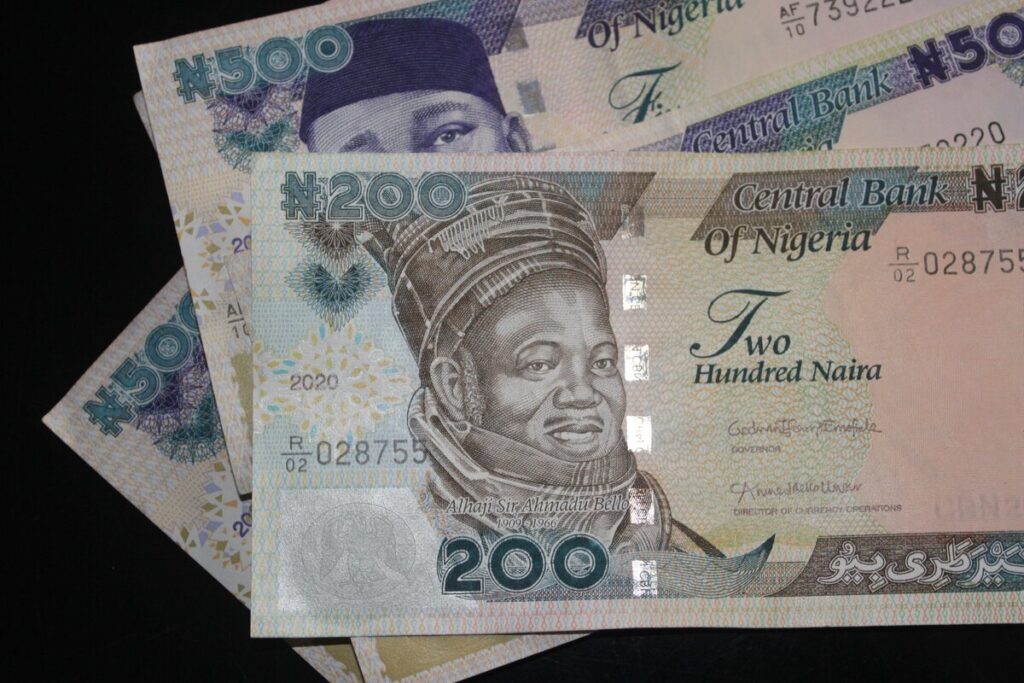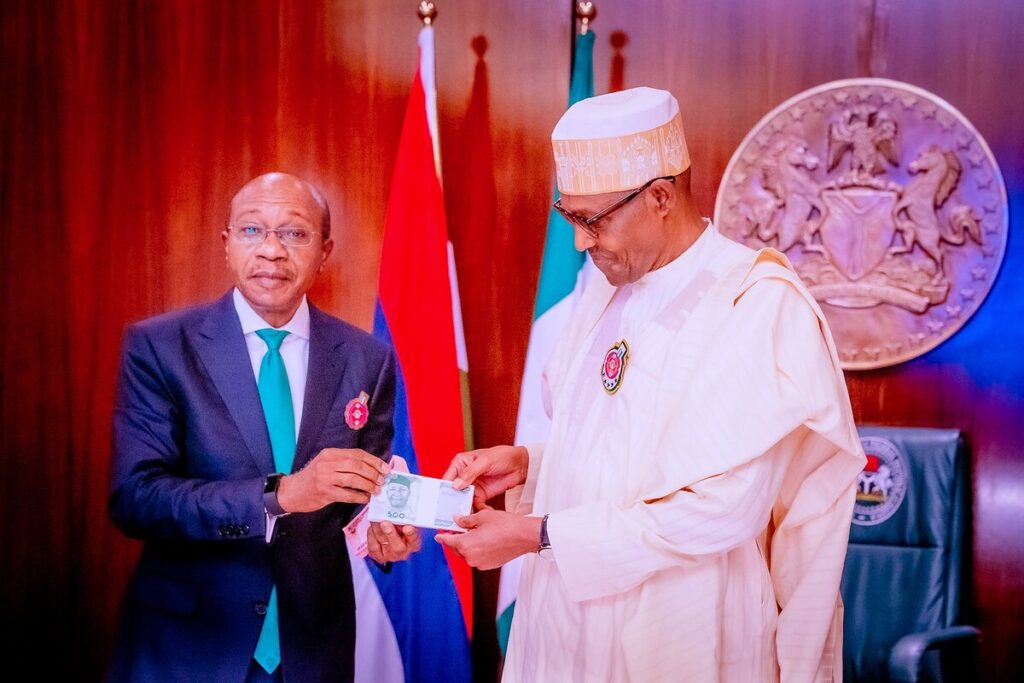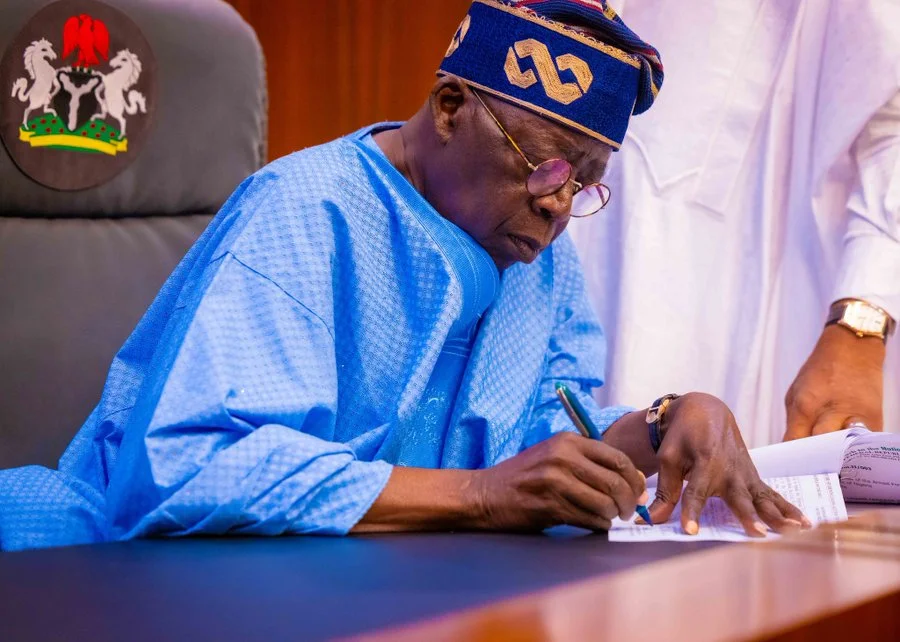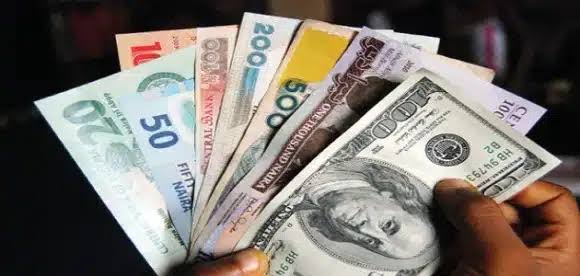Insufficient inflow, the gradual collapse of the production sector, especially agriculture, and the flamboyant political structure are some of the reasons the Nigerian currency is falling and may continue to do so if the government fails to address the core issues.

What is the actual value of Naira?
For an investor or anyone who wants to know the true value of the Naira against the US Dollar, approaching a Bureau De Change operator is a good place to start.
Although President Bola Tinubu-led government announced the floating of the naira, some financial analysts believe that more transparency is needed in the way the government does business. It seems the government doesn’t want the naira to find its real value.
At the close of trading on Tuesday, February 20, 2024, the NAFEM rate closed at $/1,551.24 (here is the rate), but at the black market rate which is operated by Bureau De Change operators, it was N1,790/N1,818 (buy/sell).
A contributory factor to the falling Naira
If you go to some malls in Abuja, you will find imported “garri”, imported table water, and nearly everything that can be sourced locally. But the elites and the politicians who can afford them go for these imported products.
The effect of giving preference to imported goods and services is that it puts pressure on the local currency. Some of them pay foreign currency for local services in Nigeria.
While the malls sell in Naira, they need dollars, Pounds, or EUR to import these products, thereby allowing the foreign currency to gain over the Nigerian currency while the Naira continue to fall. Pressure on the local currency or stronger FX is not the best for a developing or struggling economy.
Many factors contribute to the fall of the Naira. The above example is just a give you a glimpse of the situation the Nigeria’s foreign exchange market.
The fall in the value of the Naira is a result of individual actions due to the government’s failure to take certain measures.
Here are the core reasons why the Naira is depreciating.
Insufficient Inflow
Analysts familiar with Nigeria’s foreign exchange operations assert that there is insufficient inflow to enhance the value of the Naira.
While Nigeria announced the floating of the Naira, the government continues to implement control measures. There is a lingering fear within the government that the Naira might depreciate to $1,000 or more if it is allowed to fully float.
It is commendable that the Central Bank of Nigeria (CBN) lifted the ban on more than 40 items – previously banned during the reign of Godwin Emefiele – a few weeks after the floating policy.
Low net forex reserves
The administration of former President Muhammadu and his team consistently told Nigerians that all was well with Nigeria’s economy. However, a recent report by JP Morgan exposed the true situation of Nigeria’s forex reserves.
However, the report by America’s multinational financial institution isn’t new to financial analysts who have been monitoring and carefully studying the recent 7-year financial audit of the Central Bank of Nigeria (CBN) under Godwin Emefilele, ousted former CBN governor.
Low net forex reserves simply mean there will be continued FX market pressures, no wonder the government desperately need NNPC Limited’s US$3bn loan to partly improve forex liquidity conditions in the market.
But if NNPC sells its $3 billion loan to the CBN while it remits the naira proceeds to the government as upfront payments for oil revenues and taxes, the decision of the CBN to start reselling fx to BDCs operators may not address the real issue. This can’t go beyond 3 months, meaning the naira may likely fall when the CBN exhausts the $3 billion loan.
Unabated corruption
Corruption exists in various parts of the world, but the level of impunity among the political class in Nigeria underscores the extent of inhumanity among Nigerian politicians to the masses.
Some state governments, unable to pay teachers’ salaries, prioritize the construction of airports by contracting foreign engineers, even in cases where inbound and outbound flights into the state are virtually non-existent, despite neighboring airports being able to serve the state more efficiently.
Price control through sales of FX to BDC
If you are watching the situation closely, you will realize that price controls are still in place. Unfortunately, FX price control has never worked in favour of naira.
Right now, the government doesn’t want the naira to hit $/N1,500, so they brought back BDCs. It isn’t the first time the apex bank would halt the sales of FX to BDC and reintroduce sales to them.
It happened in 2016 when $/NGN at the interbank window was $/N197, former CBN boss Emefiele thought that the BDC rate (technically black market operators) which was between N230 t0 N250 to a dollar at the time was too wide, he halt sales of FX to BDCs.

A few hours after the announcement, Naira depreciated to between N280 to N285, depending on location.
As the naira continued to fall against the greenback, the helpless CBN boss Emefiele brought them back, but the dollar to Naira was already at $/520 or more at the parallel market.
Again, the CBN bans forex sales to BDC in July 2021. This time, the apex bank says there were agents of money illicit money transfers.
Between that time and now, coupled with an announcement of “controlled” floating, the naira has depreciated to N883/N910 (buy/sell) at BDC rate.
What sales of FX to BDCs means is that we are going to see an ephemeral appreciation of the Naira. Between three to five months, the BDC operators will take their FX allocation to black market, meaning the naira will be back to its depreciation path against the Dollar.
Bringing back the BDCs means pegging is back. It may be an unofficial subsidy on forex. FX price control through BDCs has never worked and may never work.
In 2021, CBN ceased selling FX to BDC operators, they were accused of sabotaging the FX efforts of the government.
But they now back to the FX value chain, meaning that the government is going to be ‘funding’ BDCs. As an investment advisor would ask, “Why give your scarce $ to BDCs, when Nigerians have moved to P2P?
Uncleared forex backlog
Who wants to bring their investment to Nigeria when they are not sure they will be able to repatriate their profits?
In July 2022, Emirate Airlines had to reduce the number of flights to Nigeria because the international airline was unable to repatriate $85 million in funds.
Has the CBN cleared the backlog?
At the time of this update, the apex bank confirmed that it paid $136.73 million backlog owed airlines. We hope the rest will be paid.
Has Emirate Airlines returned to Nigeria, if NO, then that’s an indication that the CBN reforms are not working. Emirates will return if they can get their fx. Emirate Airlines isn’t the only affected company, anyway.
Declining trust in Naira
If you saved N5 million in June 2015, by June 2022, the value of your Naira savings have reduced by more than 50% even if you added interest.
A colleague jokingly said, “Big churches now convert their Sunday offerings to Dollar so as not to minimize their losses due to the continued depreciation of the Naira.”
For instance, the value of naira to a dollar in June 2015 was N196.92, but in June 2022, naira fell to $/414.72 at the official rate (with 100% pegging in place).
What this means is that within seven years, the Nigerian currency fell by 52.52% against the US Dollar. The depreciation of Naira doesn’t only affect investors, it will also add a foreign debt burden to the government.
For instance, the depreciation of the Naira added at least N9 Trillion to Nigeria’s foreign debt burden between June 2015 to June 2023.
If within seven years, a currency recorded more than 50 per cent loss of its value and between May 2023 to August 2023 – from N461 to NN756 -, it recorded 40 per cent further loss, making multinational companies record losses.
Six of Nigeria’s biggest companies such as Airtel Africa Plc, Dangote sugar refinery, Cadbury, and Nestle recorded a combined $385 million losses.
While Alh Aliko Dangote founder of the Dangote group praised the FX policy of the new government despite losing billion of Naira, the trust of Nigerians in naira has depreciated.
Some Nigerians who are exposed to foreign trade and investment no longer trust the Naira. They are taking out their naira deposits to buy dollars and hold or they hold a portion of their money in USD.
The apex bank may call them speculators, but they are protecting their hard-earned cash as they see the politicians and policymakers themselves not showing any sign to commitment to rebuilding the Naira. Politicians spend FX at party meetings and campaigns.
Inflated estacode
The travel allowance provided to political officeholders is a contributing factor to the depreciation of the Naira.
Lawmakers and senior civil servants often opt for two-day seminars in foreign countries, even when similar resources are available in Nigeria. They do so enticed by the prospect of receiving hundreds of dollars in estacode.
Foreign school fees
With that said, schools typically open in September, which is when Nigerians who have been offered admission to universities in the U.K., United States, and Europe will flock to the CBN’s Trade Monitoring System for Personal Travel Allowance (PTA).
The more people we have leaving the country for quality education, the higher the demand for dollars. This leads to individuals exchanging their Naira for dollars, thereby contributing to the continued depreciation of the Naira.

Insecurity
In an insecure environment like Nigeria, local production is vulnerable. Only a few foreign investors are willing to take the risk of investing in a country where gunmen operate at any time of the day.
For instance, there was an incident where a town known for year-round cassava production in Plateau State was ransacked by terrorists. This occurred despite Nigeria still spending millions of dollars annually to import cassava products.
For instance, the country spent almost $600 million on the importation of cassava by-products annually, according to CBN in 2021.
Solutions
Certainly, the government has a huge role to play to make the Naira regain its value. But here are some of the measures to boost the value of the naira.
An oil-producing country that prides itself as the economy giant of Africa, but cannot refine its fuel consumption is a huge problem.
You can’t expect the Naira to rise (as outlined in this article) when you continue to import inflation. Through the importation of refined fuel, Nigeria is throwing into the ocean its opportunity to earn FX as earnings from crude oil sales.
The government should allow the BDC operators to compete with P2P instead of selling the scarce FX to the same people who control the black market.
Quality education at home, and overhauling the school curriculum to reflect the digital age is a must if the government wants to drastically reduce the number of Nigerians who source FX for payment of their foreign school fees.
Will the naira rise soon?
If Nigeria cannot earn sufficient foreign exchange to meet forex demands and continues to import fuel it can refine at home, and if those at the helm of affairs continue to use Naira to purchase dollars, then there is no way the dollar can rise against dollars and other foreign currencies.
The indicators for the Naira to gain against the Dollar are not currently in place. However, it’s important to consider that the government’s plan to sell some of its assets, including its stake in joint-venture oil and gas assets, to raise $17 billion could have an impact on the foreign exchange market. This impact would be realized if the revenue generated is adequately utilized.
Does Nigeria have the FX reserves to defend its currency?
No!
The weaknesses of the government are like butter for FX speculators in Nigeria. Therefore, there are no signs that the dollar will weaken against the Naira for the rest of 2024.


